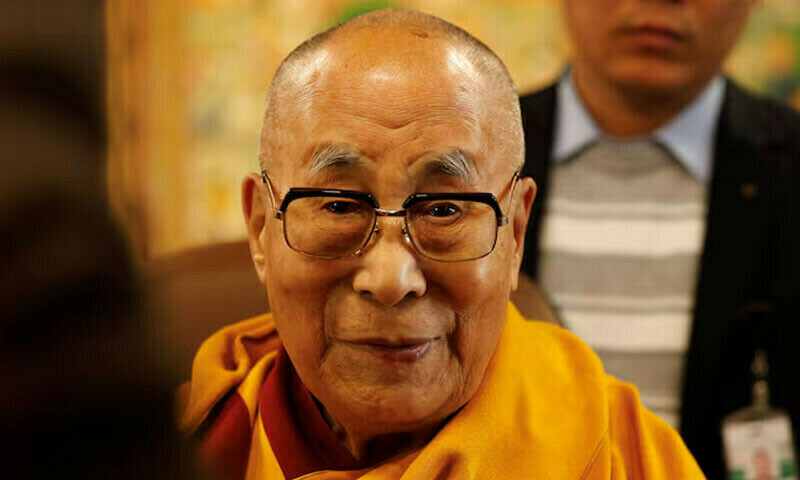By Jigme Taydeh Reuters
The Dalai Lama said on Wednesday that the 600-year-old Tibetan spiritual institution would continue after his death, reassuring Buddhist followers around the globe and saying his office “exclusively” would name his successor, even as China insisted it would.
Followers of the Dalai Lama laud his tireless campaign for greater autonomy for Tibet, a vast high-altitude plateau in China about the size of South Africa.
It is a landmark decision for Tibetans, many of whom had feared a future without a leader, as well as for global supporters who see the Dalai Lama as a symbol of non-violence, compassion and the enduring struggle for Tibetan cultural identity under Chinese rule.
According to Tibetans, Tenzin Gyatso is the 14th reincarnation of the Dalai Lama. The charismatic Nobel Peace Prize-winning Buddhist had previously said the institution of Dalai Lama would continue only if there was popular demand.
He said on Wednesday he had received multiple appeals over the past 14 years from the Tibetan diaspora, Buddhists from across the Himalayan region, Mongolia and parts of Russia and China, “earnestly requesting that the institution of the Dalai Lama continue”.
“In particular, I have received messages through various channels from Tibetans in Tibet making the same appeal,” he said in a video broadcast at the start of a meeting of religious leaders in the Indian Himalayan town where he has lived for decades.
“In accordance with all these requests, I am affirming that the institution of the Dalai Lama will continue,” he added, according to an official translation.
The announcement was made ahead of his 90th birthday on July 6.
While China condemns him as a rebel and separatist, the internationally recognised Dalai Lama describes himself as a “simple Buddhist monk”.
Many exiled Tibetans fear China will name its own successor to bolster control over a territory it poured troops into in 1950.
But the Dalai Lama said that responsibility for identifying the 15th Dalai Lama “will rest exclusively” with the India-based Gaden Phodrang Trust, the office of the Dalai Lama.
Samdhong Rinpoche, a senior Tibetan leader from the Gaden Phodrang Trust, told reporters that the Dalai Lama was “in excellent health” and that, at this time, there were “no further instructions for succession”.
However, Rinpoche said the next Dalai Lama could be of “any nationality”, and would come from a place where there is “access to freedom”.
China said on Wednesday that the reincarnation of the Dalai Lama “must be approved by the central government” in Beijing, and that it would be carried out “by drawing lots from a golden urn”, foreign ministry spokeswoman Mao Ning told reporters.
That urn is held by Beijing, and the Dalai Lama has already warned that, when used dishonestly, it lacks “any spiritual quality”.
The Dalai Lama handed over political authority in 2011 to an exiled government chosen democratically by 130,000 Tibetans globally.
At the same time, he warned that the future of his spiritual post faced an “obvious risk of vested political interests misusing the reincarnation system”.
In 1995, Beijing selected a Panchen Lama, another influential Tibetan religious figure, and detained a Dalai Lama-recognised six-year-old, described by rights groups as the world’s youngest political prisoner.
The Dalai Lama’s announcement about the continuation of the role was welcomed with relief by Tibetans, including by Jigme Taydeh, a civil servant with the India-based Tibetan government.
“Whilst we rejoice at this confirmation of its continuation, we stringently object to China’s interference and plans to install a puppet Dalai Lama”, he said. “Neither the Tibetans nor the world would recognise such mischief. “
